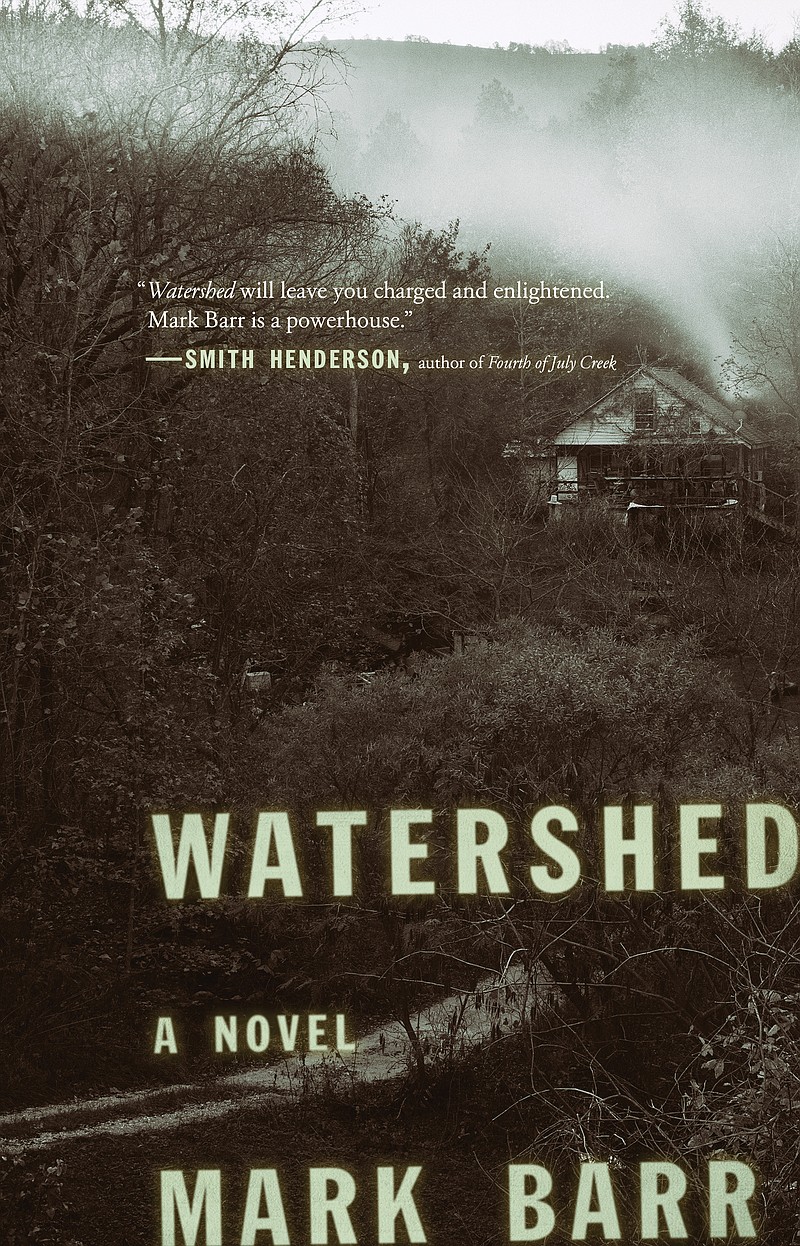"WATERSHED" by Mark Barr (Hub City Press, 264 pages, $26).
Labeled a "great experiment" by President Franklin Roosevelt, the 1933 Tennessee Valley Authority Act created a government corporation tasked with redefining the Tennessee Valley watershed. Binding seven states, the TVA became the nation's largest supplier of electricity, promoted flood control and reforestation, and served as a labor-generating counterstrike to the Great Depression - and, in the process, transformed a region and way of life.
How to frame such tectonics as compelling fiction? Mark Barr's debut novel, "Watershed," does so by considering the early TVA era from the ground up, focusing on character and place and the intimate stories of lives impacted by the agency.
Set in Hardin County in 1937, "Watershed" is about a small community impacted by the construction of a hydroelectric dam. At the center of the novel are Claire, a local woman whose flight from an unfaithful husband leaves her life in flux, and Nathan, a hired-on electrical engineer, new to town and desperate for work, who must stay one step ahead of a murky past. These two are introduced at the boardinghouse owned by Claire's aunt, where their fellow residents are TVA workers, on site for only the duration of the project. They all take meals together, work and live side by side and run up against each other's ambitions, shortcomings and secrets.
Given Nathan and Claire's centrality, we might expect the novel to pursue their love story. Yet Barr's treatment of his subjects is more complicated, compelling. For one thing, Claire becomes romantic not with Nathan but with Hull, a charismatic, Chicago-based businessman in town to sign local customers up for TVA power. What's more, Claire finds work as Hull's assistant, helping him promote electric utility to her rural neighbors, who are more apt to trust a local.
In a sense, just as Hardin County moves toward the new and unknown, Claire will be challenged to redefine herself. Having walked out on her marriage, she is subjected to judgment, gossip and even her mother's insistence that she reunite with her cheating husband. Of course, her economic and professional well-being is inextricable from Hull, whose job seniority casts an uneasy light on their relationship. Still, the more Claire tiptoes towards self-footing, the more she's moved by the goal of not being anybody's second. While the men in her orbit puff up to fight for her - or rather, their - honor, Claire must determine how to break free of such constraints.
Nathan, too, is in search of a new beginning. Working day in and out, trying to stay off public radar while still making his name at the job site, he reveals snippets of the life he left behind in Memphis, including his liability for a tragic utility accident. Like many of his cohorts, Nathan now aims to secure not only a permanent job but "the kind of work that means something." As he comes to have feelings for Claire and forms relationships with the townspeople, Nathan begins to contemplate settling down in Hardin County. To do so, however, he'll have to bury his backstory, even outrunning the law-enforcing Pinkerton agents, whose presence in town further threatens his plans.
Complementing the Claire-Hull-Nathan tension, "Watershed" weaves in secondary twists and textures, including war profiteer-like business dealings for raw materials and tension between outsider hires and townies. Throughout, Barr's language is rich and descriptive. In one early passage, Nathan overlooks the river valley expanse: "[The men were a] thousand fretting specks coursing over the site. Ten thousand spires of rebar thrust up from the dam, their lower ends buried in concrete casings that were sunk to the bedrock." Barr also showcases a crisp knowledge of the subject matter, from circuit schematics, to dam coffer construction, to the preferred make of overalls (which is Pointer Brand, of Bristol, Tennessee, of course).
"Watershed" also highlights some of the early controversy surrounding the government initiative. Though the TVA is now a long-established fixture of the southeastern landscape, as the novel follows Hull, Claire, and the others who travel Hardin County, we are reminded that progress often breeds fear and suspicion: in this case, of the further mechanization of the manual, agrarian South and of the federal government that delivered it. Who knew what might happen once the lights came on?
The project detail and period cultural themes serve as the contour of "Watershed," but it is the personal stories and relationships that keep the novel rushing forward.
For more local book coverage, visit Chapter16.org, an online publication of Humanities Tennessee.
